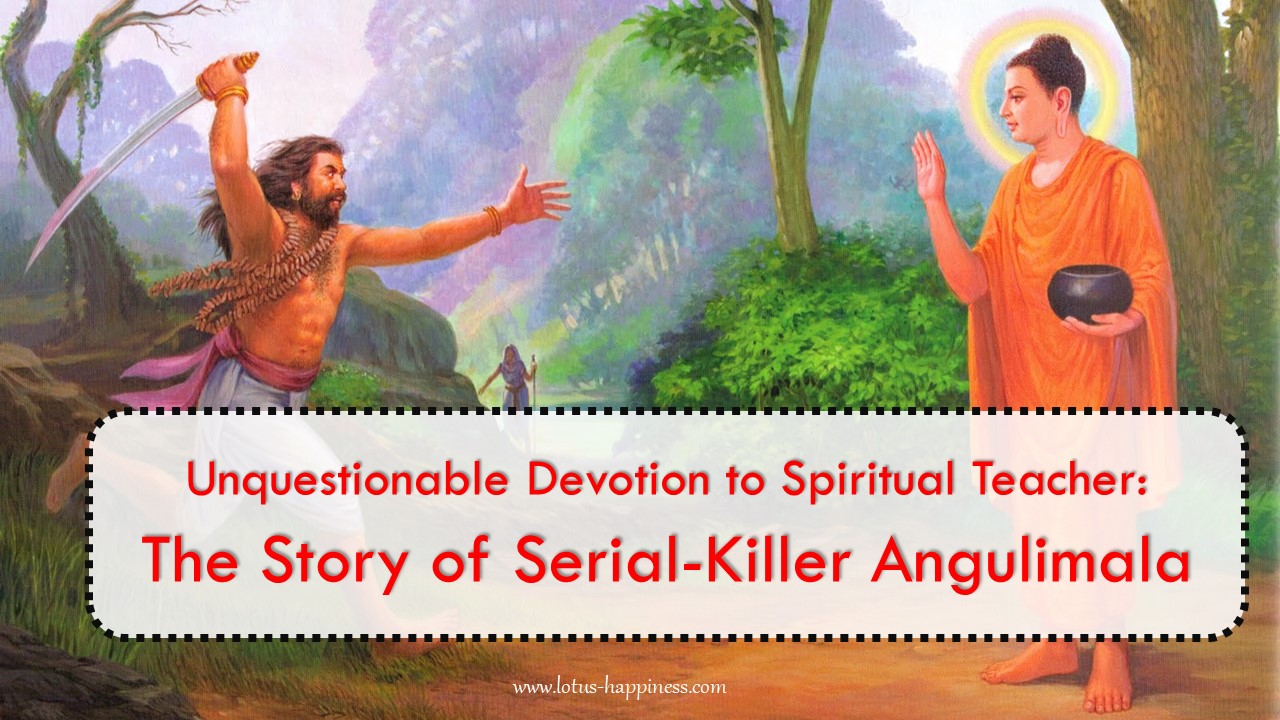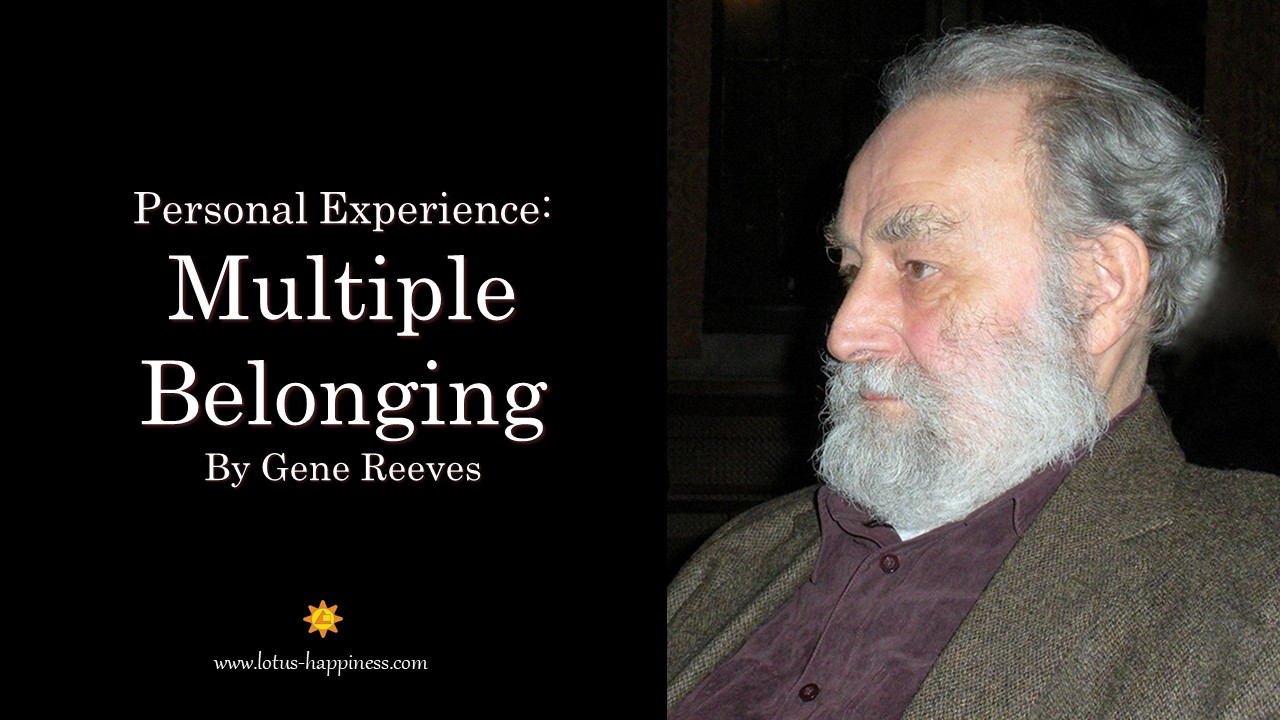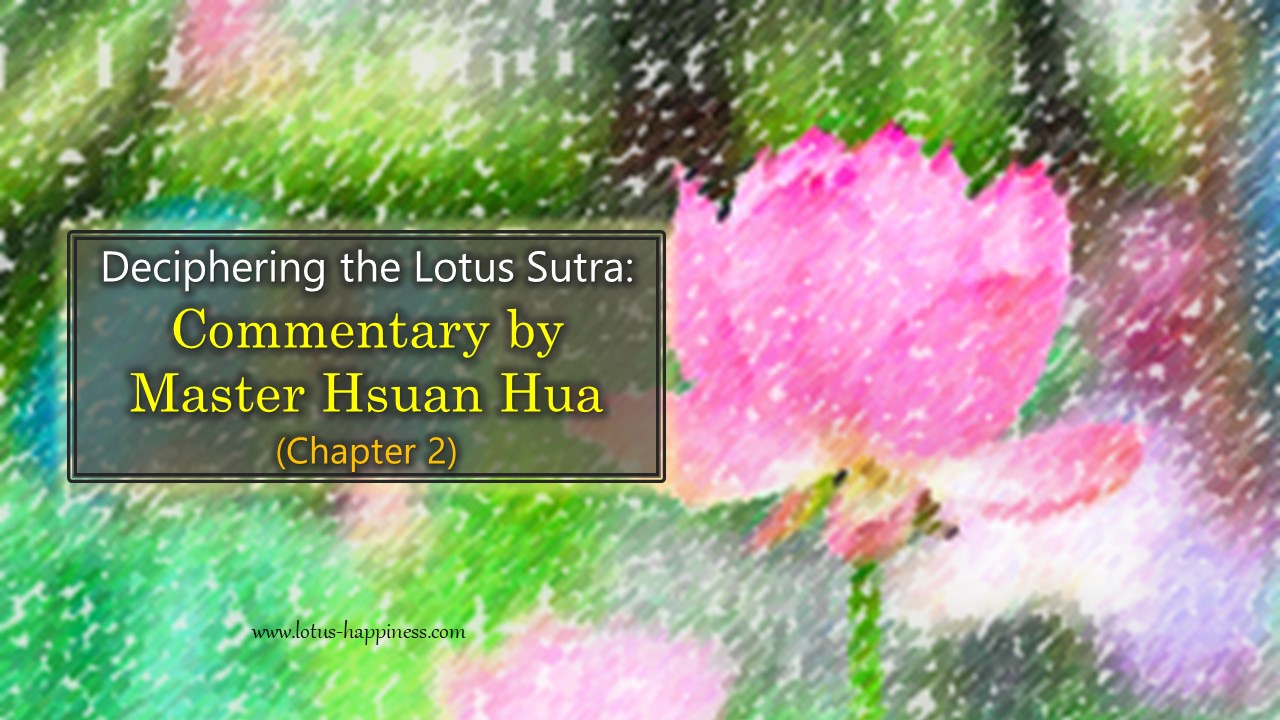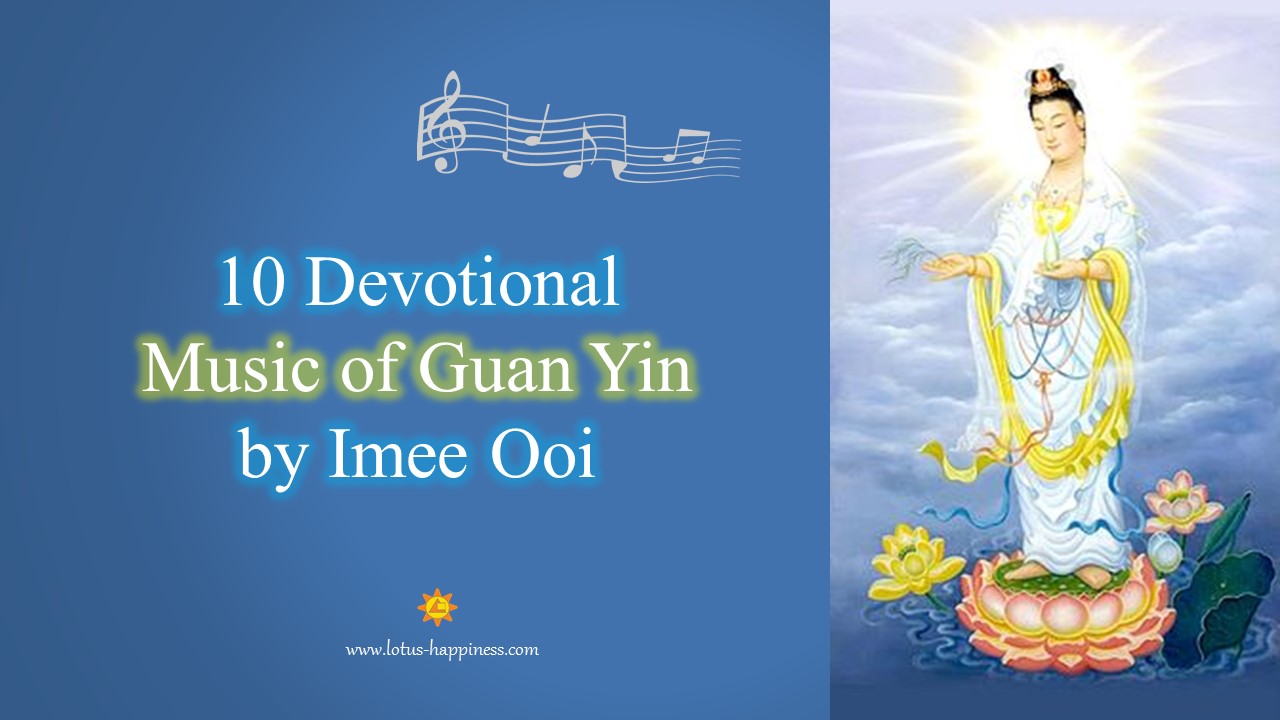Unquestionable Devotion to Spiritual Teacher: Story of Serial-Killer Angulimala
It might astound many people, including many Buddhists, to learn that one of the arhats, or enlightened saints, was a serial killer. This killer was named Angulimala, whose name means “Finger Garland,” due to the garland composed of the finger bones of his 999 victims that he wore around his neck.
According to the tradition, he was on the verge of killing his own mother when the Buddha intercepted him. The tradition also states that all of this was done at the behest of his spiritual teacher who had demanded a garland of 1,000 finger bones as payment for teachings that would enable him to be reborn in heaven.
So this mass murderer was motivated by blind faith and religious fanaticism. In our day, he would doubtless have become a terrorist, perhaps even a suicide bomber. And yet Angulimala would become a saint, and even a performer of healing miracles after his encounter with the Buddha. How did this happen?
Buddhism is unequivocally a religion of peace that values non-violence as it’s most important moral principle. The law of cause and effect as taught by the Buddha ensures that, for as long as we are bound to the wheel of birth and death, the causes we make will become the seeds that will come to fruition either later in this present life or some other subsequent lifetime. In other words, one will have to reap what one sows. Those who commit acts of murder will end up being murdered themselves, or having their loved one’s fall victim to the depredations of others, or their lives will be tragically cut short in some manner, or they might even suffer a rebirth in the hells, or as a hungry ghost, or an animal, or a fighting demon.
Furthermore, there is no god or divine savior who can erase one’s karmic debt or take on one’s sufferings through a form of vicarious atonement. While beings can and should help alleviate the sufferings of others, and karma can be mitigated, each is responsible for their own causes and the consequences thereof. Such is the most straightforward presentation of the traditional teaching.
So it is all the more remarkable that by encountering the Buddha a remorseless killer such as Angulimala was able to transform into an awakened being who was able to mitigate his karma, and even bring healing where before he had brought harm. Angulimala, however, was not always a killer, and in fact his original name was said to have been “Ahimsaka” which means “Harmless” or “Non-Violent One.” He was the son of a brahmin (the priestly caste) who was the royal chaplain in the court of King Prasenajit of Kosala.
Unfortunately his horoscope showed that in the future he would most likely become a mass murderer, the natural outcome of past lives marked by ruthless strength and a lack of empathy for others. His father offered to have him killed, but King Prasenajit believed that this destiny could be avoided if the qualities of gentleness and mercy could be engendered in him. For this reason, he was given the name Ahimsaka.
He grew up in a strict and pious home and was later sent to study with the finest teachers at the university in Takshashila. It seemed as though his parent’s plans had succeeded; Ahimsaka was growing up to be a very obedient and virtuous person, as well as handsome and physically powerful. Unfortunately, it was in Takshashila that his unquestioning obedience would lead him astray.
In Takshashila, Ahimsaka studied under a guru in order to learn the various religious teachings and ceremonies of Brahmanism. Apparently Ahimsaka became the teacher’s pet, and the other pupils of the guru found him insufferable and became very jealous. They began to spread false rumors and worked constantly to poison their guru’s mind against Ahimsaka by sowing seeds of suspicion at every opportunity.
Finally, the guru was convinced that Ahimsaka was trying to seduce his wife. According to one version of the story, the guru’s wife was herself attracted to Ahimsaka and tried to seduce him while her husband was away on a trip. The virtuous Ahimsaka spurned her and so she herself accused Ahimsaka of trying to seduce her in order to get revenge for his rejection. It might be wondered if Ahimsaka’s virtue were not also accompanied by a callous and self-righteous attitude that might further have enflamed his fellow pupils and the guru’s wife against him.
In any case, when the guru returned and was told that Ahimsaka had tried to seduce or perhaps even rape his wife he wanted to kill him. However, he was afraid to confront his superhumanly powerful disciple. He also knew that his own reputation would suffer if anything untoward happened to any of the pupils in his care. So to get rid of Ahimsaka he set before him a horrible task that he hoped would end in Ahimsaka’s own death in battle or capture and execution.
It was the custom that a student should unquestioningly obey their guru and also the duty of a disciple to present their guru with a gift before departing for home after their studies were complete. The guru told Ahimsaka that his course of training was finished but before leaving he told Ahimsaka that in order to attain a heavenly rebirth he must present him with a necklace of 1,000 human finger bones.
Ahimsaka, the dutiful and obedient student, was horrified; but at the same time something monstrous stirred within him and he set out to obey his guru by robbing and killing travelers and then collecting their finger bones to string into a necklace or garland. Clearly, his obedience was not balanced by compassion, and his unquestioning faith was not balanced by wise discernment. So it was that Ahimsaka, the formerly harmless one, took up arms, made his way into the forest to waylay travelers, and became the remorseless killer who would become known as Angulimala, the wearer of a finger garland.
Morals of the Story:
- The fact that Angulimala, the serial-killer, can repent and completely turn over a new leaf through the Buddha’s teachings is a testament to the immense power of Buddha’s compassion to save all types of living beings.
- Much as the spiritual teachers are worthy of respect, we need to be mindful that they are humans and hence not infallible. If your Buddhist tradition or organization teach you to have an unquestionable devotion to your guru/master in the form of master/mentor and disciple relationship, you will need to exercise discretion to decide if it is wise for you to have unquestionable devotion to the spiritual teachers.












